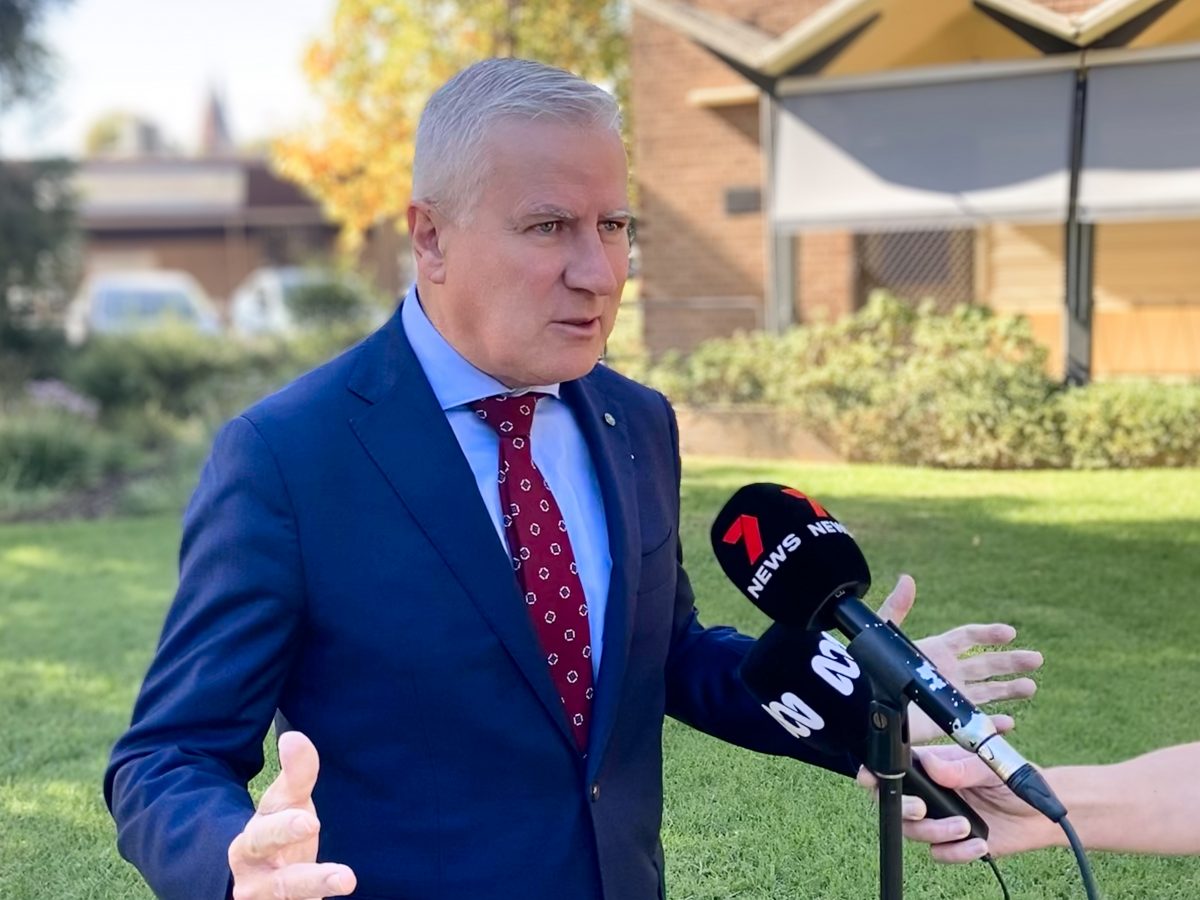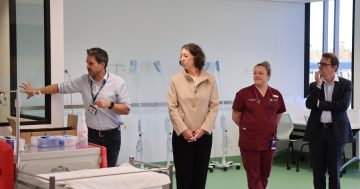
Michael McCormack has slammed the NDIA’s decision. Photo: File.
Member for Riverina Michael McCormack and National Rural Health Alliance (NRHA) Chief Executive Susi Tegen have slammed the National Disability Insurance Agency’s (NDIA) decision to cut cost limits and travel funding as part of the Pricing Arrangements and Price Limits (PAPL) scheme following its yearly financial review.
According to the NDIA, the PAPL scheme is an initiative that limits the maximum cost of supports and services for the National Disability Insurance Scheme (NDIS), and by putting price regulation in place, it ensures that participants receive value for money in the supports that they receive.
Following the 2024/25 review, the NDIA has elected to reduce funding to NDIS participants required to travel, a move Mr McCormack and Ms Tegen have labelled as detrimental to regional communities.
Mr McCormack said the changes, which come into effect from 1 July, would see regional and rural NDIS participants miss out on vital therapies.
“The ill-advised decision to essentially cut NDIS-supported allied health services in the regions will only exacerbate the already inequitable access to treatments in regional and rural areas compared to the city,” Mr McCormack said.
“Allied health services say there was no consultation before this decision was made. This is, yet again, another bureaucratic decision made by those based in the urban sprawl with no regard to the real-life consequences that people living in the regions face, such as the tyranny of distance.
“I have been contacted by many allied health professionals across the Riverina electorate, including, but not limited to, speech pathologists, physiotherapists, and occupational therapists who have conveyed their concerns the changes will have on the unique challenges of providing adequate support for those who need it in regional, rural and remote locations.
“It is imperative that the Federal Government puts an immediate pause on this short-sighted decision to conduct an urgent review into how much these cuts will hurt regional Australians who will be disproportionately and detrimentally affected, particularly on early intervention services for our most vulnerable children.”
Ms Tegen echoed Mr McCormack’s calls, describing the decision as discriminatory to people living in the regions.
“These changes effectively discriminate against people based on their location of work or home, or mobility challenges,” said National Rural Health Alliance (NRHA) Chief Executive Susi Tegen.
“Clinicians will have no choice but to reduce or cease services to rural areas due to the financial disincentives created by these new pricing arrangements. Rural, regional and remote communities are already facing persistent healthcare access challenges, where service access is well and truly below the urban average, especially in MMM 3-7 regions or towns, which have between 100 to 50,000 people.
“This is not just a health issue. It’s a social and economic one too.”
The NDIA responded to criticisms made by Mr McCormack and Ms Tegen.
“For participants living in remote areas, therapists can still claim a 40 per cent above-rate price for services, and 50 per cent for therapy provided in very remote areas. It’s also important to note that providers can continue to claim for travel-related expenses,” an NDIA spokesperson said.
“The NDIA is committed to improving access to NDIS support for Australians living in more regional and remote areas and is taking steps to address market gaps across Australia. These include working collaboratively with local communities in remote areas and focusing on a range of market interventions to improve participant access to the NDIS.
“The National Disability Insurance Agency’s (NDIA) top priority is the safety and welfare of all participants and ensuring they receive the disability-related supports they need.
“The NDIA encourages participants and their support networks to contact the NDIS, which can help to connect with services in their area or identify alternate options should they need. Anyone needing assistance to find appropriate supports can call the NDIS on 1800 800 110.”
















